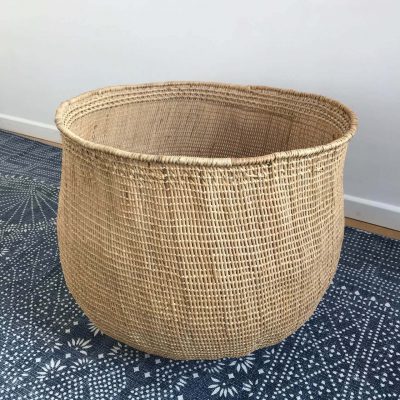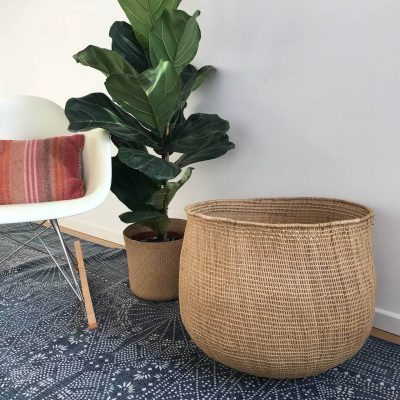Wacará baskets
Showing the single result
An ancestral weaving tradition
The Wacará Indigenous Community
Basket production is a longstanding tradition amongst the Colombian WACARÁ community.
Wacará live in a small and remote village, located in the South-East of Colombia, close to the Brazilian border in the Amazon Basin. Its inhabitants speak a language called Cubeo. To get to the closest city, Mitú, they have to walk for a few hours and then take the boat for around two hours.
The subsistence of this community depends for the most part on shifting agriculture and fishing. Therefore, its members live day by day, dedicating most of their time tending their fields and cooking.
As a complement to these daily activities, the village economy is predominantly based on the sale of its weaved crafts.
The basket weaving tradition
The basket crafting tradition of the Wacarás has been kept alive by the teaching of its technique from generation to generation. Baskets are made out of a kind of a natural fiber called Yaré, which is the material they have used for centuries.
Wacará people have to go the forest and walk for one to two days to be able to collect the special kind of Yaré they need for weaving. The fibers are collected and cut by hand. Artisans have to make them wet them so they won’t break when they use them to interlace the twigs.
The weaving technique is called Macu weaving. Macu is the name of a very old local community. It is quite an elaborate savoir-faire and therefore the weaving of one basket is a long and tedious process.
This activity is carried out mainly by men who devote their spare time to it.


